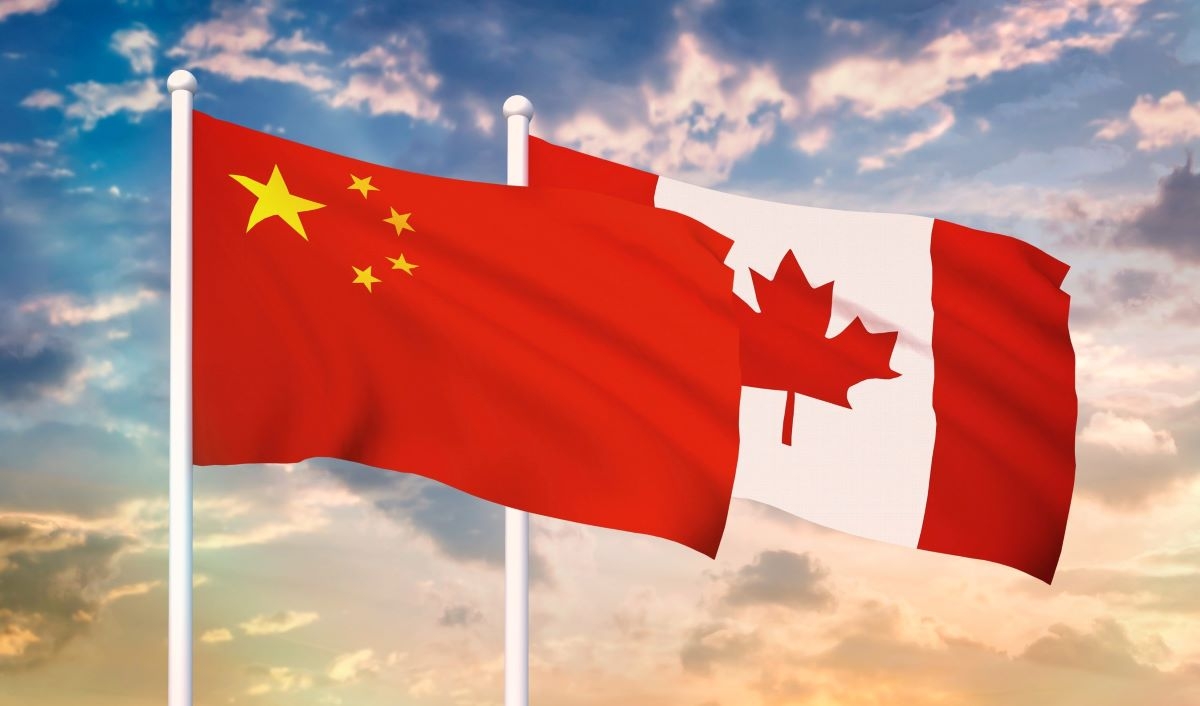
Engagement, not enragement, the key to relationship with China
By Chris Pereira
Understatement of the century: China doesn’t share the same values as Canada.
It’s no secret that there are strains in the relationship between Canada and China, emphasized this week by the Canada-led declaration against arbitrary detentions. There are questions about Xinjiang and the Uighurs, the two Michaels haven’t seen their families in more than two years, there are calls to boycott the Winter Olympics in Beijing, and of course there is Meng Wanzhou and the spying allegations against Huawei. Add to this the concerns that Canada is being “infiltrated” by Chinese operatives, and suspicions that assets in our resource sector are being hoovered up by unscrupulous foreign buyers.
Given all of this, it’s clear there are pressing and serious issues to resolve with China, especially concerning human rights, how we protect Canadians overseas, and how we advance our interests and values at home and abroad. But it’s also true that compared to 50 years ago when Pierre Trudeau established diplomatic relations with the communist-controlled Middle Kingdom, the China of today has evolved profoundly and is now closer to a western set of values than ever before in history.
The China of 50 years ago was not a cradle of business opportunity and expansion, and certainly was not a place you would ever think to invest or collaborate cross-border. No one was worried about China. It was a lethargic, run-down and backward communist economy in the true sense of the term, a nation that didn’t even let its people use currency to purchase goods; citizens received ration coupons from the government to redeem for rice, oil, and flour. People were not legally allowed to open a business or to make a profit; most people had their jobs assigned to them by the government. And having an education of any sort was “counter-revolutionary.”
Fifty years later, all of this has changed, and for the better. In the big cities these days, young people tap away on their phones and computers while sipping a Starbucks coffee and listening to jazz music. People make and exchange money at private companies, but “cash currency” is on the verge of obsolescence thanks to homegrown ultra-competitive mobile payment and e-commerce transactions that flow at light speed across the economy. At the peak of last year’s November 11 “Single’s Day” e-commerce holiday, Alibaba was processing 583,000 transactions every second, and making a handsome profit on every single purchase. Not only is it legal to have a business anywhere in China these days, but millions of people have flocked to cities like the semi-tropical metropolis of Shenzhen, with dreams of starting a company, raising seed capital and expanding globally. To increase its own competitiveness in the tech space, Shenzhen, the “Silicon Valley of China,” recently announced it will reduce income tax from 45% to 15% for local and international tech talent, encouraging well-educated and ambitious individuals to move there and build their careers. Fifty years on, it is now a good thing to be well educated in China.
Despite these improvements, there are many worrying trends emanating from Beijing. But surely we can say the same about the United States, and (sorry!) Canada as well, especially if we ask representatives from our own minority and First Nations groups to give their perspective on Canada. The “good-versus-evil” view of China is not only unproductive, it is also a dangerous double standard that threatens global peace. It is also driving a worrying uptick in domestic racism against Asians in North America, directly at odds with everything Canada stands for.
Given all of this, calls for disengagement on the premise that “we have different values” ring hollow and disingenuous to any discerning and thoughtful ear. Even if there had been no change in China the past 50 years, is it best to just cut off ties? What do we want the world to look like in five or 10 years, and what role will Canada be playing?
If you want Twitter followers, it sure is good to post angry calls to sanction China and to share every negative headline you can find about the country, painting a black-and-white narrative that gets people riled up and scared. But if our goal is to create a more peaceful and prosperous world, is that the best approach? I have a four-year-old who is going to live in that future world. I want him to grow up in a Canada that is strong, proud, and inclusively engaged globally, not a Canada that pursues Trumpian fear-mongering and win-lose narratives.
To quote the billboards around Ottawa, the world needs more Canada, and if we decide to take our ball and go home, the world will be poorer and less free as a result. And I would venture even further to say: We don’t need to compromise Canadian values to engage with countries like China. In fact, by disengaging, we are sadly compromising the full potential of what Canada could do and missing an enormous opportunity abroad to make it clear to the international community that Canadian values matter. If we engage in a proactive, nuanced, and uncompromising but respectfully Canadian way, we could achieve breakthroughs with China on human rights issues that other countries could only dream about.
The Canada-led declaration against arbitrary detentions announced this week certainly raises the stakes in the relationship with China, but only serves to emphasize the important role our country plays on the world stage. We need to engage in order to show the world what it means to be Canadian. That’s the Canada I’m proud to be a part of, and where our efforts should be spent. To bring more Canada to the world, it will take smart diplomacy and thoughtful engagement – something that boycotts, jaded Twitter posts and negative scary news headlines will never achieve. So, let’s get to work.
Chis Pereira (chris@ecoinst.ca) previously worked for Huawei Technologies in Shenzhen, and most recently served as senior director of public affairs at Huawei Canada. Fluent in Mandarin, he serves as president of Canadian Ecosystem Institute. He is based in Richmond, B.C., and has over 15 years of experience in China.
Header photo: iStock








